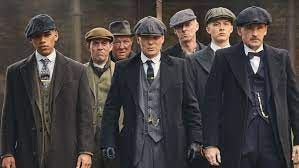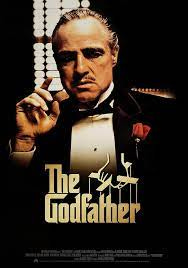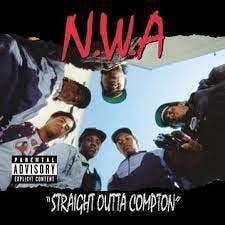Genre of Writing Project 3: Academic Essay
Genre of Writing Project 4: Op-ed in The Daily Trojan
Writing Project 4:
Part 1:
Mafia members are sensationalized in the media as being attractive and classy, while gang members seen on TV are feared and looked down upon. This is no coincidence. This is the result of immense racism toward people of color in the United States. At USC, we are located in the middle of a huge metropolitan area with a broad history of racism and gang activity. With this, we have an obligation to educate ourselves on not only Black history but Black culture as a whole.
We all attend or are in some way affiliated with the University of Southern California, a school notorious for frat parties and football. Aside from the UCLA game, Halloween is considered the biggest weekend of the year. We meticulously curate 4 or 5 costumes to wear during the week leading up to Halloweekend. The goal, as always, is to look appealing. This doesn’t necessarily mean showing a lot of skin; sometimes a clever or funny costume is utilized as a mechanism to boost creativity or comedy. This year, and for the past 10 years since the show’s release, there has been a plethora of Peaky Blinders-inspired Mafia outfits roaming Frat Row.
Something about the put-together, elevated looks exude confidence. It is desirable. This is not just a phenomenon at USC but across the US. TikTok is overrun with “thirst-traps” of people dressing in smart get-ups consisting mainly of tweed and an excessive amount of buttons. Don’t get me wrong, I come from an Irish Catholic family; I love tweed. I was practically swaddled in tweed. I am not saying that it is wrong to dress up as a Mafia member and I am certainly not telling people to go out and dress up as gang members as that would be cultural appropriation. I am saying that we need to look into why people think it is so appealing to dress up as Mafia members. This obsession with the Mafia as an attractive, respect-demanding identity cannot be explained merely by the outfits but rather by racial evidence.
Here at USC, I am majoring in Spanish and minoring in Social Work and Juvenile Justice. I have been fortunate enough to hear diverse perspectives on topics surrounding racism in our country and prejudice towards people of color. Being in LA, we frequently talk about gangs. One of my professors is a former gang member and he invites many of his connections, mostly former gang members, to the class to speak on their experiences. What I have gathered from these interactions is that gangs are a place where people with minimal resources turn for support, protection, and love. Very similar to the Mafia, gangs value loyalty and familial ties over everything. Crimes are committed at the hands of both gangs and the Mafia. Horrible crimes. Crimes that haunt your sleep. These two groups are oh so similar. The main difference? The race of the members. Gang members are people of color. Mafia members are white European Americans. Exceptions apply, as they always do, but this is generally the case. The public’s differing perception between the two groups, then, can be explained as a racial issue.
Both are groups of organized criminals who murder, steal, assault, and ruin lives. But the Mafia gets away with a clean image; a sparkling image. Gangs, on the other hand, another group of organized criminals, receive no such benefits. While there is validity in fearing gang activity, it is wrong to fear that but commend Mafias. In general, people of color in the United States are profiled, arrested, and incarcerated at rates far higher than other demographics, especially white people. In society, even without the mention of gangs, there is often a heightened perception of violence, danger, and drugs in relation to people of color. In 2019 the NAACP released a study on police relations with people of color. 84% of Black respondents and 63% of white respondents believed that white people receive overall better treatment from the police. This is also seen on a larger scale among society as a whole.
With the rise of technology, we see societal trends reflected in the media. In terms of racial disparities and more specifically the differing perceptions of gangs and the Mafia, the success of certain movies is an indicator of this racial issue.
The “Mafia-Craze” is a term used to describe the obsession with Mafias widely held among the public in the US. In 1972, The Godfather, directed by Francis Ford Coppola, was released. It is a reasonable declaration to state that this film forever changed the media field. The movie had a modest budget of $6 million and made over $130 million just in the US. Following the Corleone Mafia family, the movie highlights the dark underworld of the mob while maintaining the appealing glow by which the Mafia is forever surrounded. Don Corleone, the head of the family, has been idolized for decades as a powerful man whose moral compass may be a little off but at the end of the day is looked at in a positive light. We see this representation in other uber-successful movies such as The Irishman (2019), Goodfellas (1990), and The Untouchables (1987). All famous movies in which violent mafiosos are glamorized. One could argue that the popularity of the Mafia genre over gang media is simply a preference, however, at its root, it is a racial difference.
When we compare movies about gangs, they are less popular and overall have lower viewership and earnings. In 2015, Straight Outta Compton was released. This film follows the story of rap group N.W.A. as they gained popularity and fought against racial obstacles in the 1980s in Los Angeles. A beautifully made movie, it portrayed Black struggle and the intricate ways in which people of color in this country navigate a life set up for failure. The movie had a budget of $28 million and made $160 million. When we take into account the higher budget and the 40 year gap, we can see that in comparison to The Godfather this film did far worse.
The year Straight Outta Compton came out, a group of Academy of Motion Picture Arts and Sciences members were chatting about which movies were in the running for Best Picture. When talk turned to this movie, the group of white men all over 70 shared that they hadn’t watched it. They hadn’t watched the highest-grossing movie ever directed by a Black person. These men would be voting on that year’s Best Picture. Why did they find it unnecessary to watch this film? Because they didn’t think it would be worth their time. Films portraying the Black experience, especially as related to gangs, inner-city life, and poverty, do not even receive a chance of succeeding. Straight Outta Compton was probably only as successful as it was because it portrayed a famous rap group. Without this already cemented fame, it would have been in even worse shape. The Wire (2002) is another brilliant portrayal of the Black experience, however, it is nowhere near as well known as other media centering on Mafia culture.
The overwhelming popularity of Mafia films and the lack of enthusiasm for movies about gangs and the Black experience needs to be highlighted because it tells us about our inherent biases. Moreover, it indicates how society’s perception as a whole towards the two groups is a racial issue. It is not that Mafia movies leave out the violence, but rather that the violence is not taken as a genuine threat because the characters are white. Meanwhile, in movies about gangs, the violence is helping to fuel the already present fear around people of color in the US.
Society is currently undergoing a cultural shift in which there is heightened awareness surrounding privilege, implicit bias, and tendencies. Personally, this has meant checking my privilege and educating myself. However, I have been falling short. When I was doing my research, I found that I didn’t recognize any of the movies that first popped up when I searched “movies about gangs''. This demonstrates that movies about Black culture do not receive an adequate platform. However, this excuse is not sufficient. I am at fault for not educating myself enough on movies highlighting lives different from my own.
My favorite movie is The Departed (2006), a Mafia film about how interconnected the police are with Mafia activity, another indicator of the respect held by this type of criminal organization. It is not bad that this is my favorite movie, but I need to understand why this is the way it is. We are exposed to these films because white people are directing them, starring in them, and they are talking about the white experience in the US. We can all take a step beyond taking in the media immediately presented to us and digging a little deeper to find the good stuff. The stuff that doesn’t have the budget to be widely marketed or is simply not on our radars. I am on the path to watch more Black-centered movies, and I’m hoping that you will join me so that together we can become a better educated campus! Here are some that I really want to watch: Till (2022), Descendant (2022), King Richard (2021), and Miss Juneteenth (2020).
Part 2:
In Writing Project 4 we were tasked with transforming WP3 into a different genre. I went from an academic essay that I would hypothetically write in a class to an op-ed geared towards the Daily Trojan readership. I am exploring implicit biases and racism and how that has led to the “Mafia Craze” as well as a general fear towards gangs. This fits into the broader discourse surrounding race as a whole. In my social work classes here at USC, we have spoken about institutionalized racism and how this leads to higher rates of poverty, incarceration, etc. amongst populations of color in the US. I tackle the issue from a film perspective by trying to highlight the gaps that exist among movies about white culture vs. Black. While there was discussion on how Hollywood is racist, I didn’t find anything specifically zooming in on the example of the Mafia and gangs. In light of this, I feel that my piece is filling a hole in the race discourse.
Early on in my research I read an article that explored the Mafia craze and explained it as an inherent racial preference. This article, “Why Do We Admire Mobsters” by Maria Konnikova, discussed how white viewers feel more connected to mobsters because they too are white. She brought up the discourse surrounding “in-groups” and “out-groups” that psychologists have been studying for years. In her article, she categorized Mafia members into the “in-group” because their white identity matches the white identity of many of the people in power in the US. I took this one step further by not only addressing the obsession with the Mafia but adding in the gang component.
In Writing Project 3, I aimed to inform my audience about the trends surrounding Mafia vs. gang media and how racial factors were at play. My audience was a vague, faceless college professor. I did not take into account their background or opinions. Because of this, it made it difficult for me to fully engage with my content and have an intention behind my writing other than simply informing my reader of my observations. However, when it came to Writing Project 4, I wanted to have a concrete audience which would lead me to a firmer intention behind my writing. By choosing the USC community, a community which I am a part of, I was able to easily relate to my reader and present my information in a way I thought would be well-received. For example, adding in the Halloween anecdote helped to cement the mutual experience that many of us have as USC. Moreover, because my original desire for picking this topic was to educate myself, I found it fitting to have my final piece be a “join me in this endeavor” article. I am a people-person, and it felt natural to write to a comrade rather than a Turnitin tab.
My college writing has been limited to research essays written for my professors. They have all followed the same format and the audience has been practically the same, barring a few various fields of interest. Writing a piece where I could choose the audience and intention was incredibly freeing and overall I think truly helped to allow for my voice to come out. Most importantly, I feel that for the first time in my writing career, I have actually added something meaningful to a wider discourse. After completing WP4, I feel nothing less than completely satisfied, which is honestly more than I could have asked for.




